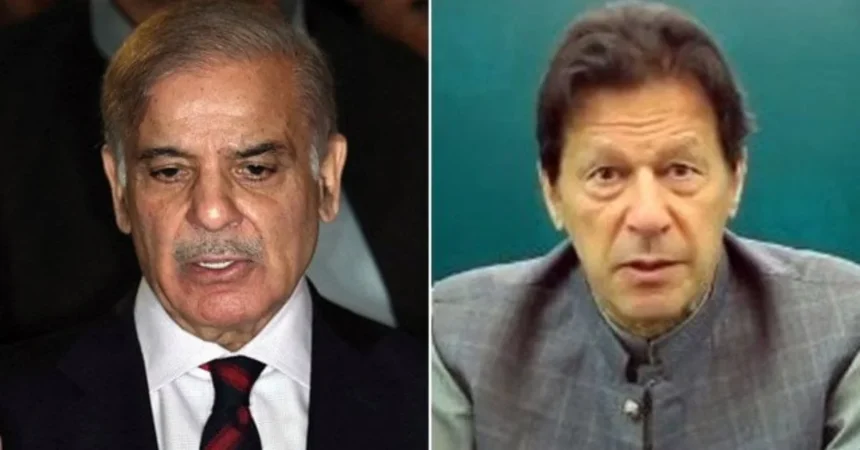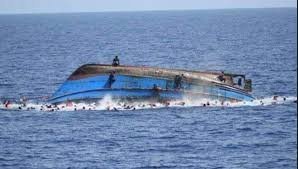In the midst of mounting political tensions in Pakistan, Prime Minister Shehbaz Sharif has once again targeted his political rival, Imran Khan, accusing him of attempting to sabotage the country’s already fragile economy. These accusations come at a time when Pakistan faces severe economic challenges, from rising inflation to a weakening currency, and the stakes are high with general elections on the horizon.
The public exchange between Shehbaz Sharif, the leader of the Pakistan Muslim League-Nawaz (PML-N), and Imran Khan, the chairperson of the Pakistan Tehreek-e-Insaf (PTI), is yet another example of the heightened political atmosphere in Pakistan. The accusations have sparked widespread debate as the country grapples with the complexities of governance, economic recovery, and political maneuvering.
The Economic Landscape in Pakistan
Pakistan’s economy is currently in a state of turmoil. Economic analysts and experts have pointed out the nation’s high levels of debt, slow GDP growth, and inflation that continues to burden the population. The sharp depreciation of the Pakistani rupee against the US dollar has further exacerbated economic woes, leading to a reduction in the purchasing power of the average citizen.
In such a fragile environment, accusations of sabotage only serve to deepen the political divide in the country. Shehbaz Sharif has consistently emphasized the need for stability and responsible governance, but he claims that Imran Khan’s policies during his tenure as Prime Minister were a direct cause of Pakistan’s current economic challenges. These claims, while politically charged, strike a chord with a significant portion of the electorate that has felt the impact of economic mismanagement over the past few years.
Shehbaz’s Allegations Against Imran Khan
Prime Minister Shehbaz Sharif’s latest statement accuses Imran Khan of deliberately undermining the economy during his time in power. According to Shehbaz, Khan’s PTI government mishandled key economic decisions, resulting in a severe decline in the country’s financial health.
One of Shehbaz’s central points is that Imran Khan’s erratic policies, such as the mishandling of the International Monetary Fund (IMF) negotiations and foreign loans, caused significant setbacks for Pakistan. The abrupt exit from IMF talks during Khan’s tenure led to financial uncertainty, and the delayed implementation of necessary reforms only worsened the country’s fiscal situation.
Shehbaz Sharif also pointed to Khan’s decision to freeze fuel prices at a time when global prices were rising. While this move provided temporary relief to citizens, it placed immense pressure on the government’s finances. Shehbaz argued that such populist policies, which were politically motivated, ended up doing more harm than good in the long run.
Further, Shehbaz contended that Imran Khan’s frequent clashes with opposition parties, including the PML-N, led to political instability, which in turn damaged investor confidence. Foreign direct investment (FDI) slowed, and international trade relations were strained. According to Shehbaz, Khan’s combative approach to governance and disregard for consensus-building only deepened the country’s economic malaise.
Political Instability and Economic Fallout
The political instability that has gripped Pakistan since Imran Khan’s ousting from office in 2022 has significantly affected the economy. Following his removal from power, Khan’s PTI has launched a series of nationwide protests, calling for early elections and accusing the current government of being installed through a foreign conspiracy.
These protests, along with the uncertainty surrounding Khan’s political future, have created an environment of volatility. Business activities, particularly in urban centers like Lahore, Karachi, and Islamabad, have been repeatedly disrupted by protests, strikes, and road blockades organized by PTI supporters. The disruptions have further strained Pakistan’s already fragile economy, causing setbacks in production, exports, and overall economic growth.
Shehbaz Sharif has placed the blame for much of this unrest squarely on Khan’s shoulders, accusing him of prioritizing personal political gain over the well-being of the nation. The prime minister argues that Khan’s refusal to accept the results of his ouster and the subsequent political drama have done lasting damage to Pakistan’s reputation on the global stage.
Khan’s Counter-Accusations
In response to these allegations, Imran Khan has firmly denied any wrongdoing and has, in turn, accused the Shehbaz-led government of incompetence and corruption. According to Khan, the current economic crisis is a result of years of financial mismanagement by the PML-N and its allies, who have been in power for much of the past few decades.
Khan claims that his government’s policies were geared towards long-term economic stability and growth. He points to initiatives such as the Ehsaas program, which aimed to provide financial support to low-income families, as evidence of his government’s commitment to uplifting the underprivileged. Khan argues that his efforts to renegotiate the terms of Pakistan’s IMF loan were intended to secure a more favorable deal for the country and prevent it from sinking further into debt.
Further, Khan has accused the current government of stifling democracy by delaying the general elections. He argues that the only way to restore economic stability and public confidence is through a fair and transparent electoral process, which he believes would result in his return to power. In his view, the political instability is not a result of his actions, but rather the Shehbaz government’s refusal to respect the will of the people.
Public Reaction and Economic Concerns
The public reaction to the ongoing political bickering between Shehbaz Sharif and Imran Khan has been mixed. While some support Shehbaz’s allegations, particularly in light of the economic struggles the country is facing, others view his accusations as politically motivated. Many Pakistanis feel caught between two opposing political forces, both of which are blaming each other for the country’s woes, without offering clear solutions.
On the streets of Pakistan, economic hardship remains the primary concern for most citizens. The cost of living has skyrocketed, and unemployment rates remain high. Many have grown frustrated with both the PML-N and the PTI, viewing their ongoing political battles as a distraction from the real issues facing the country.
The business community, in particular, has expressed concerns about the lack of political stability and its impact on the economy. Business owners have complained about the uncertainty created by the frequent protests and the inconsistent economic policies that have resulted from the political turmoil. Foreign investors, too, have become wary of entering the Pakistani market, fearing that the unstable political environment could undermine their investments.
The International Community’s Perspective
Pakistan’s economic and political turmoil has not gone unnoticed by the international community. Global financial institutions, including the IMF and World Bank, have expressed concerns about Pakistan’s ability to implement necessary economic reforms and maintain political stability. The IMF has repeatedly urged Pakistan to take decisive action to address its fiscal imbalances and increase revenue generation through tax reforms.
Western governments, too, have been keeping a close eye on Pakistan’s internal politics, particularly in light of the country’s strategic importance in the region. The instability in Pakistan has raised concerns about its ability to continue playing a stabilizing role in South Asia, particularly given its proximity to Afghanistan and India.
China, one of Pakistan’s closest allies, has also been monitoring the situation closely. China has invested heavily in Pakistan through the China-Pakistan Economic Corridor (CPEC), a key part of its Belt and Road Initiative. The ongoing political instability in Pakistan has raised questions about the future of CPEC and the ability of Pakistan to fulfill its commitments under the project.
What’s Next for Pakistan?
As Pakistan approaches its next general elections, the political landscape remains uncertain. The rivalry between Shehbaz Sharif and Imran Khan shows no signs of abating, and the accusations of economic sabotage are likely to continue as the election date draws nearer.
For now, Pakistan remains in a state of political and economic flux. The country’s leaders will need to find a way to stabilize the economy, build public trust, and restore investor confidence if they hope to navigate these turbulent times. Whether or not the accusations leveled by Shehbaz Sharif against Imran Khan hold weight, one thing is certain: the future of Pakistan’s economy will depend on the ability of its leaders to put aside their political differences and focus on the greater good of the nation.
#PakistanEconomy #Shahbaz Sharif #ImranKhan #PTI #PMLN #PoliticalTensions #PakistanPolitics #PakistaniEconomy #EconomicChallenges #Election2024 #PakistanEconomicCrisis #InflationCrisis #PublicDebate #PoliticalRivalry #IMFDeal #PakistanDebtCrisis







